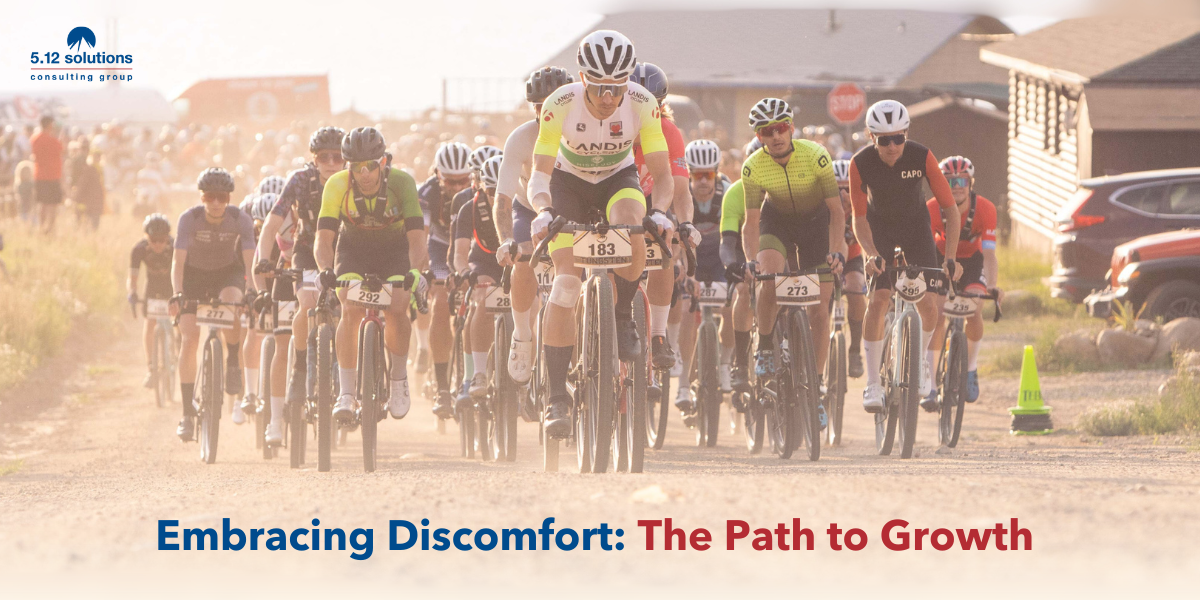 Last week, I completed the Ned Gravel Bike Race in Nederland, CO. Starting at 8,250 feet above sea level, the race featured over 8,000 feet of elevation gain throughout a 70-mile course. Most of it was off-road, on gravel, and through challenging terrain, all under unrelenting heat.
Last week, I completed the Ned Gravel Bike Race in Nederland, CO. Starting at 8,250 feet above sea level, the race featured over 8,000 feet of elevation gain throughout a 70-mile course. Most of it was off-road, on gravel, and through challenging terrain, all under unrelenting heat.
Although I managed to cut 6 minutes off my 2023 time, I expected to perform even better. Despite being well-trained and having logged many tough days in the mountains, both my legs began to cramp badly around mile 50.
Things don’t always go as planned on race day. Many factors can arise that have an unexpected impact -, even with the right physical and mental preparation. However, our greatest growth doesn’t come when we’re comfortable; it comes from those challenging experiences that we take the time to learn from.
The Growth Found in Discomfort
The Ned Gravel Bike Race was a stark reminder that true growth often comes from discomfort. When everything goes according to plan, we rarely learn or change. It’s when we’re pushed to our limits, when things don’t go as expected, that we discover our true potential and resilience.
5 Strategies to Grow from Challenges
Here are some strategies that can help you grow when things don’t go exactly as planned:
1. Conduct a Thorough After-Action Review
After any challenging experience, take the time to conduct a detailed after-action review. Ask yourself:
- What went well?
- What didn’t go as planned?
- What factors were within my control, and which were not?
- What can I learn from this experience?
By systematically analyzing what happened, you can identify areas for improvement and apply those lessons to future endeavors.
2. Embrace a Growth Mindset
Adopting a growth mindset means viewing challenges and failures as opportunities to learn and grow. Instead of seeing setbacks as reflections of your abilities, view them as feedback. This shift in perspective can help you stay motivated and resilient, even in the face of difficulties.
3. Set Realistic, Stretch Goals
Set goals that push you beyond your comfort zone. These stretch goals should be challenging yet achievable, encouraging you to strive for improvement while acknowledging the possibility of setbacks. This approach helps you build resilience and adaptability.
4. Seek Feedback
Don’t hesitate to seek feedback from others. Constructive criticism can provide valuable insights that you might not have considered. Whether it’s from colleagues, mentors, or peers, external perspectives can help you identify blind spots and areas for growth.
5. Develop Coping Strategies
Prepare yourself mentally and emotionally for challenges by developing coping strategies. This could include mindfulness practices, stress management techniques, or simply having a strong support network. Being equipped to handle adversity can make the difference between giving up and pushing through.
Looking Ahead
My next gravel bike race is in September—a 110-mile challenge in Trinidad, CO. I’m taking the time to do a full after-action assessment of my recent race to learn and apply those lessons to the next one. I’ll be reviewing my training regimen, nutrition strategy, and mental preparation to ensure I’m better equipped to handle the unexpected.
Reflection and Growth

What questions do you ask yourself when things don’t go exactly as expected at work and in life?
By embracing discomfort and learning from challenging experiences, we can unlock our full potential and achieve greater growth than we ever imagined.
Let’s commit to reflecting, learning, and growing from every experience, especially the tough ones. That’s where true growth happens.
One thing is certain: in today’s increasingly complex (& chaotic) business environment, you can’t afford business as usual.
We prepare leaders and teams for the future of work. Request your complimentary Insight Session today.

